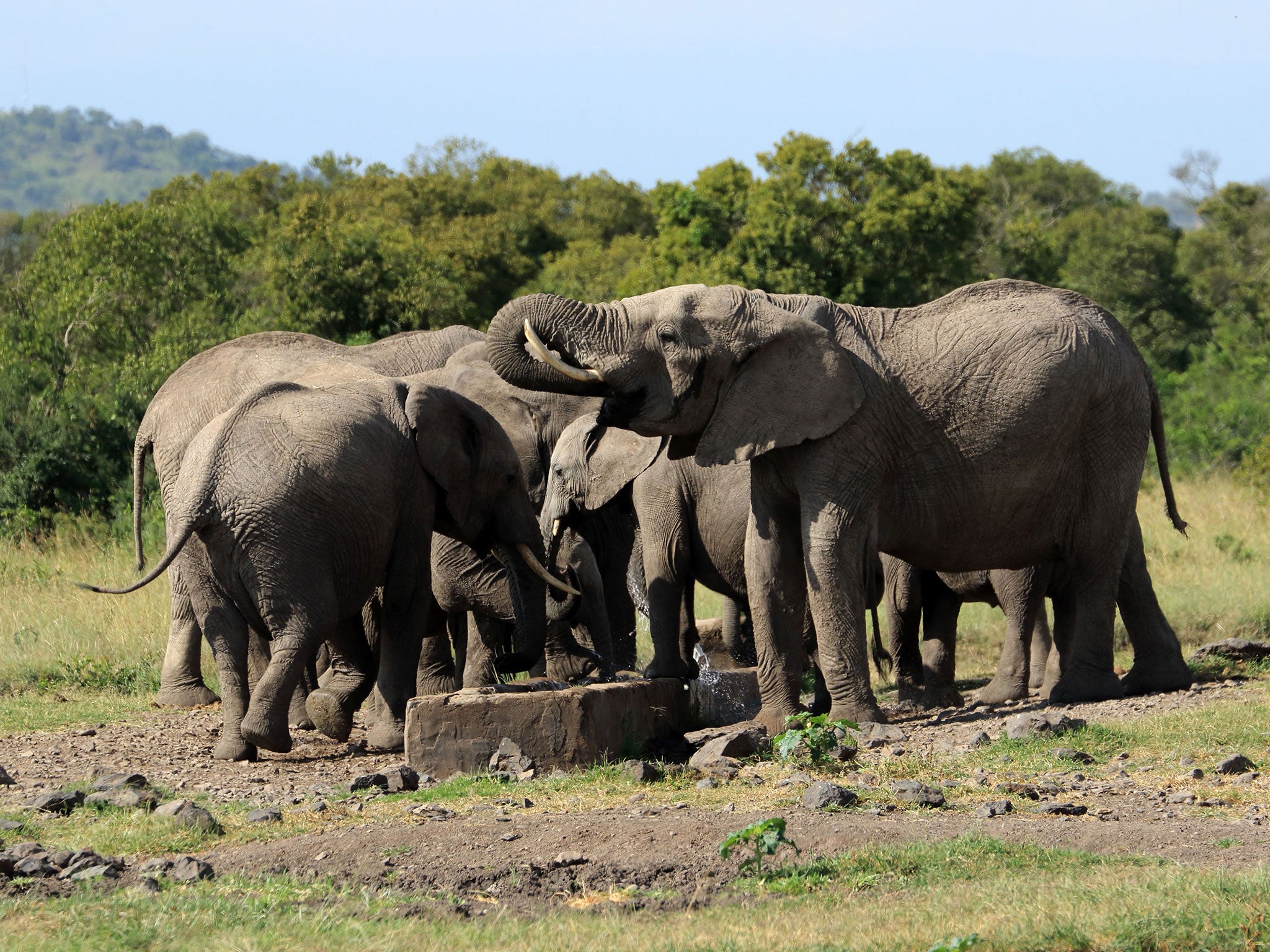Think Conservation, Make It Kenya
Kenya's Ministry of Tourism, supporting partner of the Giants Club Summit, explains why this east African country is such an appealing prospect for investors

Your support helps us to tell the story
From reproductive rights to climate change to Big Tech, The Independent is on the ground when the story is developing. Whether it's investigating the financials of Elon Musk's pro-Trump PAC or producing our latest documentary, 'The A Word', which shines a light on the American women fighting for reproductive rights, we know how important it is to parse out the facts from the messaging.
At such a critical moment in US history, we need reporters on the ground. Your donation allows us to keep sending journalists to speak to both sides of the story.
The Independent is trusted by Americans across the entire political spectrum. And unlike many other quality news outlets, we choose not to lock Americans out of our reporting and analysis with paywalls. We believe quality journalism should be available to everyone, paid for by those who can afford it.
Your support makes all the difference.Kenya is the Land of unlimited possibilities. It is today ranked the 4th largest economy in Sub-Saharan Africa with a GDP in excess of US$60 billion. The World Economic Forum’s country competitiveness report ranks Kenya 1st in Africa in quality of human capital, availability of research and on innovation, making it the place to be as an investor.
Kenya’s geographical location coupled with its strategic investments in airport expansion, Kenya Airways and Mombasa Seaport make it a transport hub in Africa. In particular, Kenya’s Jomo Kenyatta International Airport and Mombasa Port are the 2nd busiest in Africa.
With 72% of its population having internet access (35.5 million users), Kenya has one of the highest rates of urban internet access in Africa making it ideal for investment in this knowledge age. The country is set to benefit from a major demographic dividend courtesy of its young population, with close to 70% of the 44.4 million. With its East African Community and COMESA memberships, Kenya provides investors access to the wider consumer market of up to 400 million people.
In the World Bank report, 2015 Kenya was one of the most improved countries in the Ease of Doing Business. The 2015 February issue of Fortune Magazine named Kenya as the best African emerging economy to invest in due to accelerated infrastructure development and a stable political and macroeconomic environment. In addition, Kenya stands out to leverage on its diversified economy that is increasingly attracting inflows from a strong service sector compared to other large African economies that are supported by extractive industries such as oil, gas and minerals.
Kenya is home to the only United Nations headquarters outside of Europe with two agencies; UNEP and UN Habitat also based in Nairobi. Kenya is also a corporate headquarter for global multinationals that have set base in Africa.
Wildlife is Kenya’s natural heritage. Kenya is therefore committed towards preserving its wildlife. The country is home to the famous big five which form part of the centerpiece for Tourism. According to the Convention on International Trade in Endangered Species of Wild Fauna and Flora (CITES), Kenya is among countries that have made significant progress in adopting appropriate legislations towards combating illegal trade in wildlife. This is in tandem with the 2015 United Nations resolution which requires countries to take decisive steps at the national level to prevent, combat and eradicate the illegal trade in wildlife, on both the supply and demand sides, including strengthening the legislation necessary for the prevention, investigation and prosecution. On this front, Kenya is committed and has made it a top priority to secure a future for wildlife, sustain the beauty and ecological integrity by putting in place laws that protect endangered species such as elephants and rhinos as well as working together with stakeholders to conserve our natural heritage.
Tourism is one of the most important socio-economic sectors in Kenya. The sector contributes a total of 10.5% of the Gross Domestic Product (GDP) and employs about 9.2 % (206,000) of the total wage workforce in the country (WTTC, 2015). The sector has high multiplier effects as its growth stimulates further development in other sectors of the economy. The Kenya Vision 2030 blueprint recognizes the importance of the sector and envisages Kenya to be among the leading long-haul tourist destinations in the world, offering a high value, distinct and diverse visitor experience.
The country boasts of numerous unique tourist attractions with the Wildebeest Migration being one of the Seven New Wonders of the world. Kenya has won international acclaim as the authentic wildlife safari destination. Visitors who toured Kenya, have in the latest Country Brand Index (CBI), demonstrated 82% brand loyalty with the main contributing factor being the generosity, warmth and hospitality of the Kenyan people.
Since the 1960s, Kenya's dominance in sports has been unrivalled. Currently, it is the world’s number one in IAAF World Championships, 2015 and recently bagged the Main Cup at the World Rugby Sevens Singapore after pulling off a stunning 30-7 upset victory over Fiji making it the home of champions.
Join our commenting forum
Join thought-provoking conversations, follow other Independent readers and see their replies
Comments